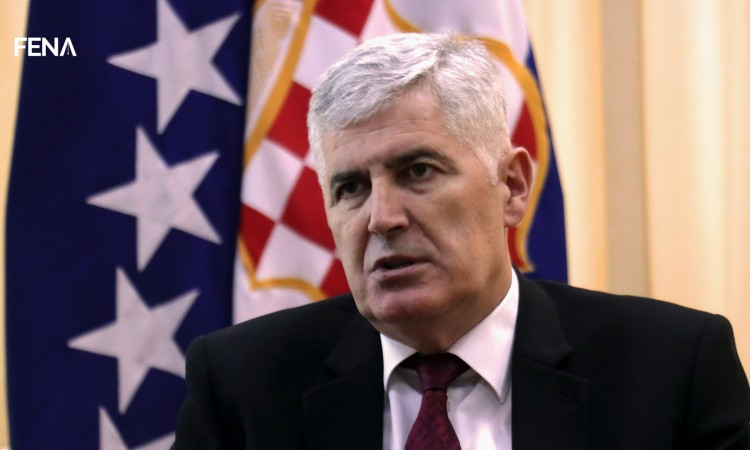
If Bosnia manages to achieve significant progress in changing its election law the country can count on EU candidate status in May, the speaker of the House of Peoples and leader of the strongest Bosnian Croat party in the country, Dragan Covic, told the Fena news agency on Wednesday after he spent the past two days meeting with EU officials in Brussels.
Covic and House of Representatives Speaker, Denis Zvizdic, told EU officials in Brussels this week that Bosnia’s progress toward EU membership is the country’s top priority.
“During all the talks I emphasised that we made significant steps forward, the realistic dynamic is that we inform the EU on the progress we achieved by the end of February so that we can by the end of March agree on a new Election Law,” Covic said.
However, he added that he told EU officials that there will probably be an effort by some, “especially from Sarajevo”, who do not want any progress regarding this issue and want to maintain the status quo.
"This would be devastating for Bosnia and Herzegovina, as it is certain that North Macedonia and Albania will receive full support for opening negotiations with the EU at the meeting in Zagreb in May and it is our interest to secure candidate status within the same timeframe," the Bosnian Croat leader said.
Bosnia’s election law is an issue political leaders have been bickering about for years, without ever managing to reach a compromise.
The problems stem from two court rulings.
One of them is a 2009 ruling by the European Court of Human Rights which said that Bosnia must allow minorities the right to run for certain posts.
Dervo Sejdic, a Roma and Jakob Finci, a Jew, have sued Bosnia because the Constitution does not allow them to run for president or member of the upper house of the parliament.
That is because according to the 1995 Dayton Peace Agreement, the country’s presidency consists of representatives of Bosnia’s three constituent peoples - the Bosniaks, the Serbs and the Croats. The House of Peoples is also filled with members of only those groups.
That violates the rights of the country’s minorities and the Court in Strasbourg ordered the country to change it.
The other ruling was handed down by Bosnia’s Constitutional Court.
In December 2016, the Court ruled partially in favour of a complaint lodged by Bosnian Croat politician Bozo Ljubic, who complained about the state election law provision dictating that cantons delegate at least one representative from each of the country’s three main ethnic groups to the FBiH upper chamber.
He argued that the Croat influence in cantons with a majority Bosniak population was unfairly diminished in the process of selecting FBiH MPs. According to Ljubic, Croat candidates should be elected from majority Croat cantons exclusively.
The Constitutional Court declared that part of the law unconstitutional and gave political representatives six months to agree on how to amend it.
This was never done until now, mostly because the SDA and the HDZ BiH failed to reach a compromise.
The SDA argued that changing the law the way the HDZ wants it would effectively divide Bosnia into separate regions based on ethnicity - which would contradict the EU Human Rights Court ruling.
Covic also said on Wednesday that the EU has realised it should not try to mediate in the process of Bosnia’s political parties trying to find an agreement on a new election law.
“They made it clear to us that if we want to, we should do it,” he said, adding that the HDZ BiH and the main Bosniak party in the country, the Party for Democratic Action (SDA), are trying to do this as “the leaders of two peoples.”
If the parties do not manage to find a compromise on the issue, “it will be seen as our inability and we will remain outside of Europe,” he said.
Kakvo je tvoje mišljenje o ovome?
Učestvuj u diskusiji ili pročitaj komentare





 Srbija
Srbija
 Hrvatska
Hrvatska
 Slovenija
Slovenija







